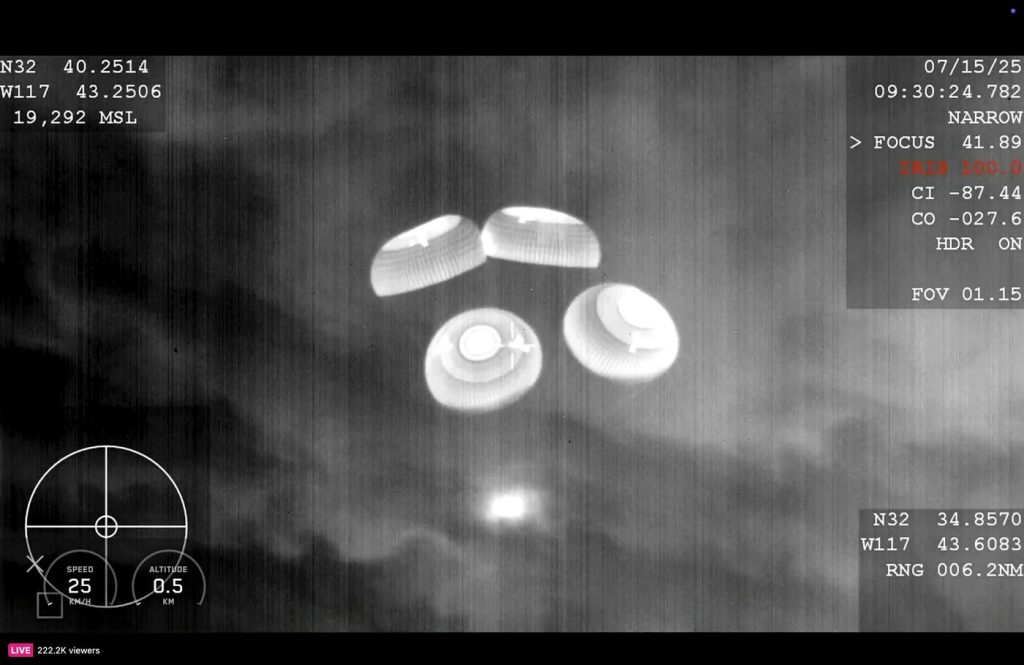CAPE CANAVERAL, Fla. – A historic private spaceflight featuring the first astronauts from India, Poland, and Hungary in over 40 years concluded with a successful splashdown in the Pacific Ocean on Tuesday. This mission marked a significant milestone in international space collaboration.
The SpaceX capsule effectively undocked from the International Space Station (ISS) on Monday and parachuted into the ocean off the Southern California coast, executing a flawless landing less than 24 hours later. The mission was part of a charter from Axiom Space, a Houston-based company, underscoring the growing trend of commercial partnerships in space exploration.
Launched nearly three weeks prior, the crew consisted of four astronauts: Peggy Whitson from the U.S., who is also the most experienced astronaut in the nation’s history, alongside Shubhanshu Shukla from India, Slawosz Uznanski-Wisniewski from Poland, and Tibor Kapu from Hungary. Each of these countries paid over $65 million for their participation in the mission, reflecting the significant financial investment in space research and travel.
Whitson expressed gratitude upon splashdown, stating, “Thanks for the great ride and safe trip.” This mission not only served scientific purposes but also celebrated the cultural heritage of the participating nations. The astronauts carried out numerous experiments while orbiting the Earth, contributing valuable data to ongoing research.
It is noteworthy that the previous instances involving astronauts from India, Poland, and Hungary took place during the late 1970s and 1980s, primarily associated with Soviet space missions. This new venture stands as a resurgence of their contributions to space exploration, demonstrating the revival of interest in human space travel from these nations.
Axiom's recent mission is the fourth to the ISS since 2022 and is part of NASA's broader strategy to commercialize access to low Earth orbit. This initiative aims to involve more private entities and individuals in space missions, thus expanding the realm of opportunities for space-related activities. NASA has plans to retire the ISS in 2030 after more than three decades of operation, paving the way for new commercial space stations being developed by several companies, including Axiom.
As the landscape of space exploration evolves, missions like this one exemplify the collaborative spirit that is vital for future endeavors in astronomy and astrobiology. The concerted efforts of international teams signify a hopeful future for humanity's presence in space, driven by innovation and shared knowledge.











